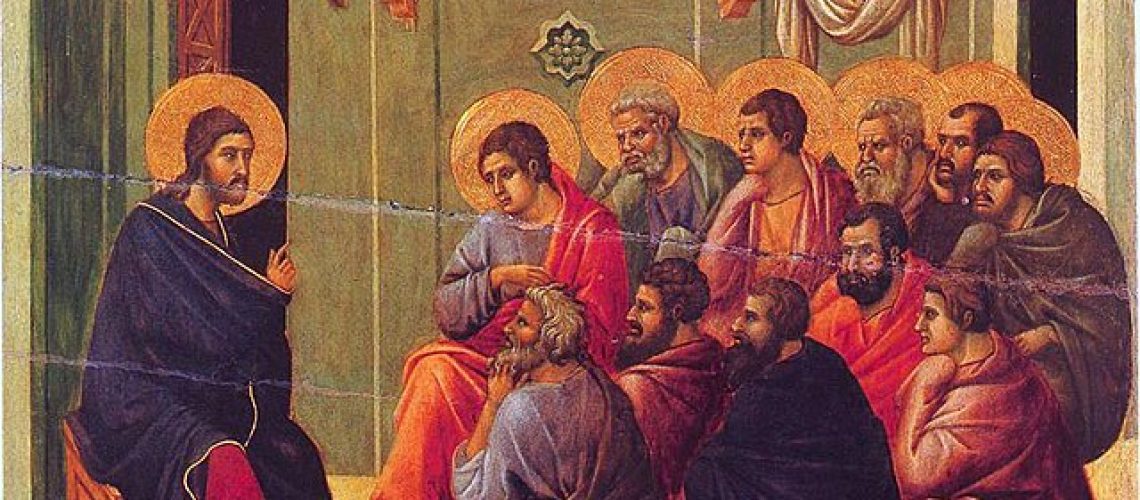Wine at the Wedding
The Gospel of John is certainly the most mystical and theological of the four gospels. While it contains numerous motifs and metaphors, we will pay close attention to the marriage banquet theme. The first of Jesus’ miracles, changing the water into wine at the wedding in Cana, takes place “on the third day” (John 2:1). Indirectly, John is turning our minds to the link between the water—often symbolizing baptism, wine—often symbolizing the blood in the eucharistic sacrifice, and the resurrection that takes place on the third day after Jesus’ death. We will return to this theme toward the end of this reflection.
Waters by the Well
There is an important Old Testament motif that many glance over, namely finding one’s wife by the well. Abraham sends Eliezer to find Isaac a wife only for Eliezer to find her by the well. Jacob finds Rachel, his first love, by the well. Moses encounters Zipporah for the first time by the well. The sole exception to this pattern might have been Saul who was by no means a role model for anyone to emulate. By the times of Jesus, it is likely that a Jew hearing the story of a man encountering a woman by a well was the start of a love story culminating in marriage.
When Jesus meets the Samaritan woman by the well, the disciples are surprised he is speaking to her, especially that she is an enemy of the Jews by virtue of being a Samaritan. Certainly, Jesus’ encounter with her did not conform to the conventional narrative. However, it involved her history of failed amours. Echoing the transformation of water in Cana, Jesus begins speaking about the transforming water He grants. Jesus says,
“Everyone who drinks of this water will be thirsty again, but those who drink of the water that I will give them will never be thirsty. The water that I will give will become in them a spring of water gushing up to eternal life” (John 4:13-15).
Christ and Church; Water and Blood
Jesus once changed the water into wine. Undoubtedly, He could change wine into His blood. But unlike the other three synoptic Gospels, John does not give us an elaborate account of Jesus blessing bread and wine and changing them into His body and blood. Instead, John begins his account of Jesus’ ministry with water and wine and ends it with water and blood. From Jesus’ pierced side came water and blood, symbols of the baptism and eucharist, which institute His Church.
The dramatic account of the crucifixion of Jesus in the Gospel of John paints an elaborate image where Jesus is on the cross between heaven, where His Father is, and earth, where His mother stands by the side of His beloved disciple. In this scene, Jesus fulfills the words of Adam, “a man shall leave his father and mother and be joined to his wife” (Genesis 2:24). The Church is His bride, the true mother of the living, established by the sacraments of the baptism and eucharist. As such, the Cross, which was a method of punishment, has become a source of life acting simultaneously as the throne of the Messiah and His marriage bed where He unites Himself to His bride.
To be with the Messiah in the Gospel of John is to participate in the sacramental life of the Church ever emanating from the His crucified body. To be a true follower of the Messiah, you ought to walk with His mother and beloved disciple all the way to the cross. As Christians, we are called to have Christ formed within us spiritually as He was formed within His mother’s womb physically. Likewise, the sonship which the Messiah bestows on the beloved disciple in relation to His mother, we are called to emulate as children of the Church that constantly nourishes us.
Prayer
Open the eyes of our hearts, O Christ our God, that we may believe and understand the depths of your words and works during Your ministry, on the Cross, and after Your resurrection. Grant us to know You and the Father who sent You for in this knowledge lies our eternal life. Through Your Spirit, may our knowledge rise from theorizing about You to participating in You. Grant us true sonship to Your Church as You granted the beloved disciple sonship to Your holy mother. Open our lips that we may confess our faith in the Trinity until Your second coming.

